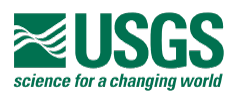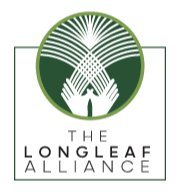2014 Workshop - May 1st Stream Temperature Data and Modeling Meeting II
by
Jean Brennan
—
last modified
Feb 13, 2015 09:56 PM
Co-hosted by EPA Region 1, U.S. Fish and Wildlife Service, North Atlantic Landscape Conservation Cooperative, USGS Northeast Climate Science Center, and USGS Conte Anadromous Fish Research Center. Presentations are available - see agenda below for a link to the files.
Original Posting on the North Atlantic LCC Website
Click here to download all the presentations as a zip file
| Time | Agenda Items | Links to Related Content |
|---|---|---|
| 8:00 | Coffee/Tea/bagels/donuts | |
| 9:00 |
Welcome/Introduction: Ralph Abele, U.S. EPA; Scott Schwenk, North Atlantic LCC Meeting Purpose: Ben Letcher, USGS |
|
| 9:10 | Temperature data and climate concerns as the “gateway” to hardcore stream science – Dan Isaak, U.S. Forest Service | Download Presentation |
| 10:00-11:55 | Session 1: Updates on NE Temperature Modeling/ Monitoring | |
| 10:00 | NorEaST Web Portal: Stream Temperature Mapper and Data Application – Jana Stewart, USGS | Download Presentation |
| 10:15 | Northeast Climate Science Center stream temperature project update – Austin Polebitski, U.Wisconsin-Platteville and Yin-Phan Tsang, Michigan State University | Download Presentation |
| 10:30 | Break | |
| 10:40 | Forecasting Changes in Aquatic Systems and Brook Trout – Ben Letcher, USGS | Download Presentation |
| 10:55 | Thermal regime modeling, Naomi Detenbeck – EPA Atlantic Ecology Division | Download Presentation |
| 11:10 | Analysis of temperature/fishery data - NH, MA and CT– Jennifer Jacobs, University of New Hampshire | Download Presentation |
| 11:25 | Groundwater/Stream Temperature - Christine Hatch, David Boutt, UMass-Amherst | Download Presentation |
| 11:45 | Northwest Thermal Refugia Primer - Christian Torgersen, USGS, Joe Ebersole, EPA | Download Presentation |
| 12:00 | Lunch | |
| 12:45-3:20 | Session 2: Data application, future directions – moderated discussion | |
| 12:45 | Amazing apps and building a national stream internet - Dan Isaak, USFS | Download Presentation |
| 1:35 | Summer Thermal Thresholds of Fish Community Transitions in Southern New England Streams – Mike Beauchene, CTDEEP | Download Presentation |
| 1:50 | Approaches to Data Application - Ralph Abele, EPA, Ben Letcher, USGS, Gerry Szal, MA DEP | |
| 2:20 | Stream Temperature and Streamflow: Future directions/ integration of efforts | |
|
Discussion Questions for the Moderated Sessions Session 1 (1:50-2:20): Approaches to Data Management and Application How can we improve databases and get more use of them?
Session 2 (2:20-3:20): Stream Temperature and Streamflow: Future directions/ integration of efforts What are future research needs and where are there opportunities for integration?
|



























